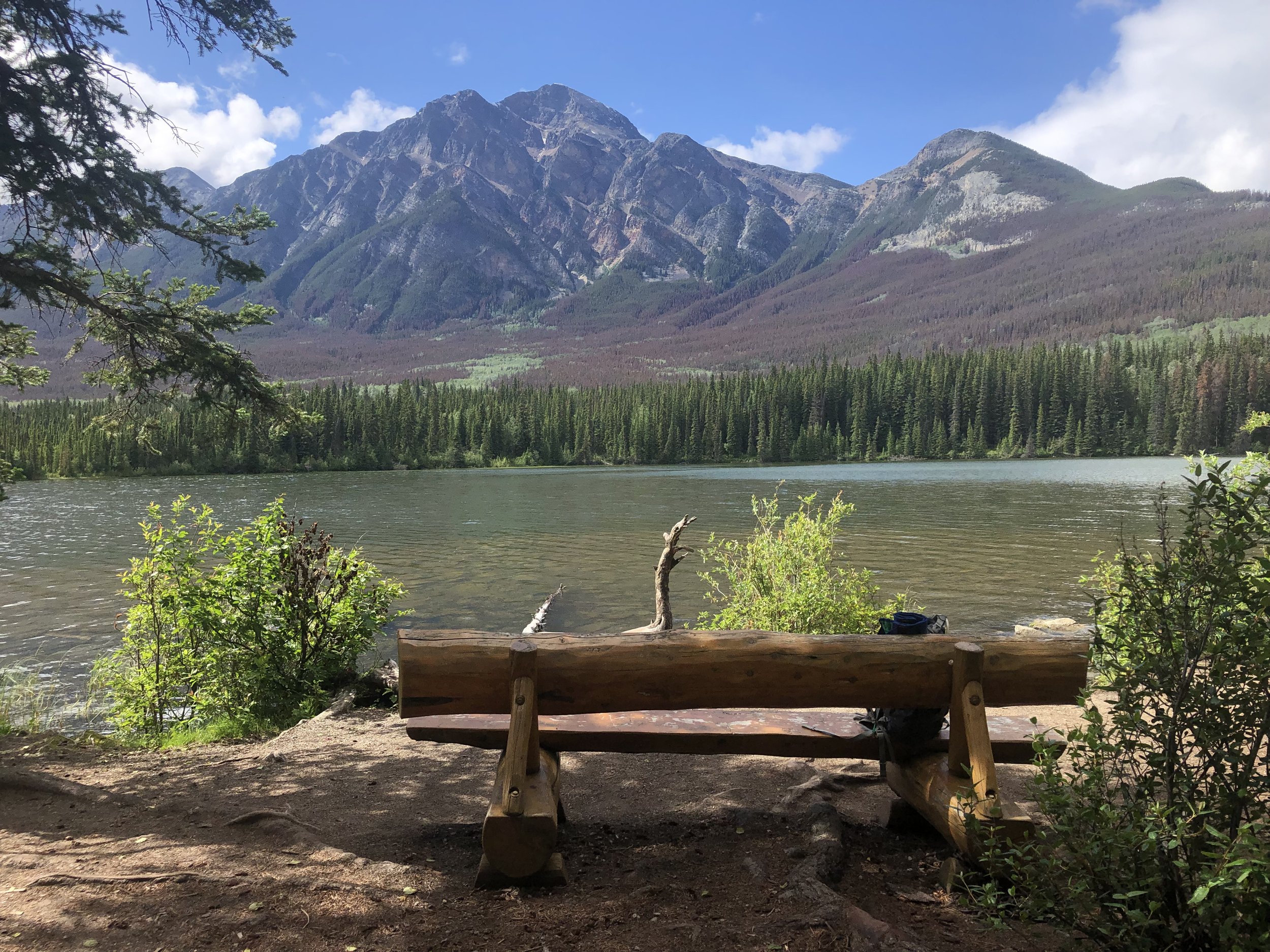
Therapy for Teens & Young Adults
According to a 2018 survey conducted by the American Psychological Association, only 45 percent of 15-21 year olds surveyed say their mental health is good or very good.
Meanwhile, 91 percent reported experiencing physical or emotional symptoms related to stress and mental illness in the past year.
In a society that is so fast-paced and judgmental, it’s completely normal to experience mental health struggles.

But, I don’t know what I need, nothing can change, why even bother paying to talk to a stranger….
Sometimes, we all need someone who isn’t our bestie, our mom, or our pet to listen.
That’s where I come in.
It’s okay not to be okay when things around you aren’t okay.
Having worked with young people for a decade, I have extensive experience supporting teens, young adults, and families/caregivers/loved ones through a variety of experiences including:
Anxiety related to school shootings and other community violence
Grief and trauma resulting from loss of loved ones to community & police violence
Loss of parental figures and pets during adolescence
Unhealthy Coping such as substance use, self harm, or negative self-talk
Suicidal Ideation - personal, peer group, family
Peer / Family Relationship conflict
Stress and anxiety related to academic achievement and extracurricular activities
Identity development and the experience of coming out to peers, family, and community
Anxiety about the future - college, workforce, other transitions to adulthood
Video Games as a self-care / coping outlet
Living with a family member who struggles with addiction or unhealthy communication tendencies
PTSD & Mental Health Challenges stemming from abuse
The impact economic instability has across the family - supporting individuals & the family unit
Educational disruption due to moving, distance learning, mental health related hospitalization, or other factors.
Being a teenager in a world far different than anything any adult in your life can relate to.
Social Media related anxiety due to the combined fear of missing out and the fear of being doxxed, bullied, or otherwise treated with less than respect online.
and more.
Are you considering starting therapy or looking for online mental health support?
Click to my “Getting Started” page and complete an interest form to be contacted about next steps.
Your privacy is important to me.
I do not share client identity information with anyone outside of our session and will never “out” you to any adults in your life.
I stand firmly in opposition to any legislation (such as this) that endangers the lives and rights of LGBTQIA+ clients and will protect your identity and confidentiality.
Minor consent laws are very important to protect the mental health and rights of teens.
-
In the State of Oregon, clients 14 and older may seek mental healthcare without parental consent and clients 15 and older may seek medical care without parental consent.
Clients can access birth control and full reproductive care at any age without parental consent in the State of Oregon.
Payment for services is due at the time of services and can be accepted via credit card.
-
Minors may receive outpatient mental health treatment if they are 13 years of age or older without the consent of a parent or guardian. The parents will not be notified without minor consent. RCW 71.34.530.
Any adolescent may request and receive outpatient treatment without the consent of the adolescent's parent.
Parental authorization, or authorization from a person who may consent on behalf of the minor pursuant to RCW 7.70.065, is required for outpatient treatment of a minor under the age of thirteen.
-
In the State of Florida, clients 13 and older may seek up to two clinical mental health appointments in a single week for crisis support without parental consent.
After the initial two appointments, clients in Florida between 13-17 are required to have parental consent to continue treatment.
-
TN Law (See TCA 33-8-202) gives children ages 16 and 17 with “serious emotional disturbance “ or mental illness the same rights of privacy as adults with some exceptions.
This means that TN Law gives 16 and 17 year olds who qualify the right to initiate therapy or counseling and the right to privacy of their health records.
This also means that parents do not have rights to know when their 16 or 17 year old attends therapy, the goals of therapy, progress of therapy, issues discussed, or records related to therapy, unless given the rights by the 16 or 17 year old child.
-
I have extensive experience in navigating supporting clients who experience ideation, have attempted, or are close to someone who has/does.
In the State of Oregon, there are laws such as HB3139 (effective 1/1/2022) around disclosure of suicidality to a trusted adult.
The summary of this law is as follows:
Requires mental health care provider who assesses minor to be at imminent and serious threat of attempting suicide to disclose relevant information to parent, guardian or other individuals to engage in safety planning. Requires parental disclosure when minor receives suicide risk assessment, intervention, treatment or support services.] Requires mental health care provider who assesses minor to be at imminent and serious threat of attempting suicide to disclose relevant information to parent, guardian or other individuals to engage in safety planning. Permits provider to disclose relevant information regarding minor's treatment and diagnosis to organizations providing minor's treatment support. Permits provider to disclose minor's treatment and diagnosis information to individuals and organizations involved in minor's treatment if minor does not object to disclosure. Permits provider to decline to disclose minor's treatment and diagnosis information if disclosure could endanger minor, is not in minor's best interest or would disclose information to individual who abused or neglected minor. Grants civil immunity to providers for making disclosures in good faith without minor's consent.
-
I am a mandatory reporter, so I am obligated to report child abuse to the Child Abuse Hotline.
I work to prioritize safety - physically and emotionally - whenever I receive information of suspected child abuse and value being intentional in this process to minimize and mitigate the trauma of experiencing, reporting, and being a part of a Child Abuse investigation.
I have extensive experience in this area as well as familiarity with Forensic Interviewing, the Oregon Child Welfare System, and the mental health toll a child abuse report can have on all involved parties.
I encourage you to ask specific questions about this if you have them.
-
According to the State of Oregon:
Child definition: A child is a person under the age of 18 or a person under 21 that is living in or receiving services from a child-caring agency.
What constitutes a mandatory report of child abuse: Having reasonable cause to believe that any child I come in contact has suffered abuse or that any person with whom I come in contact has abused a child.
I must report child abuse and neglect 24 hours per day, seven days per week.
The report must be made as soon as possible. This requirement applies whether you I observe the abuse or neglect during work activities or on personal time.

If you are a teen or young adult who needs to talk about anything on the list above - or something else - and feel like we might be a good fit, let’s chat.
As I have told clients for years, “If I don’t know how to help, I can listen and help you find someone who does. Your story, your experiences, and YOU matter. “
The world is FAR different from when I was a teen or young adult and I am here to listen and be a support in the way every young person deserves.
If you are an adult in the life of a teen or young adult struggling to know how to support, I’m here for you too.
My work in public schools has included supporting both students AND the adults who love those students. This includes teachers, coaches, families, friends, aunts, uncles, mentors, and grandparents.
I love working to help humans survive the waves of their lives and integrate the hard moments into the big picture.
Commonly Referenced YouTube Mental Health Videos
If you're looking for YouTube Channels with great videos, I often recommend Psych2go, AnxietyCanada, PsychHub, TherapistAid, AutismWorks, and Therapy In a Nutshell.
For Meditations for calming, insomnia, or resetting the nervous system, Ally Boothroyd is a favorite.
For families/adults, Finding Solutions Together explains many common therapy discussions well too and helps explain different types of therapy from 2 couples' therapists.
Here are some of the highlight of videos I have been asked for most by Teen Clients:
I'm Fine - Teen Depression PSA : www.youtube.com/watch?v=8g_kA2soWOo - a 2 minute video depicting what Depression feels like for many teens
Anxiety - a Short Film https://youtu.be/mRqR4mOC4gc
A Teacher Saved My Life https://youtu.be/DovbuB5biJg
General Mental Health Videos
10 Mental Illness Signs You Should Not Ignore - https://youtu.be/9B-wTp2PZH8
The Mental Health Crisis affecting Latina Teens https://youtu.be/5bovfmAZZMc
Black Mental Health - A Discussion by Trevor Noah https://youtu.be/A5qZv9RgX6k
Youth Produced video: https://www.youtube.com/watch?v=LaRB-nbCKio
Social Anxiety - one of the top 3 topics I often have requests to talk about
What is Anxiety - for parents to watch https://www.youtube.com/watch?v=M7TKVngrFv4
What is a Panic Attack https://youtu.be/Ya1HfNY7898
Hidden Signs of Anxiety -https://youtu.be/woJFvy5Jp1Y
Symptoms and Strategies for Social Anxiety in Children and Teens https://youtu.be/ypHzXOcUQwE
What Is Social Anxiety? https://www.youtube.com/watch?v=-Gjn9N5vfmc
Social Anxiety Explanation Video (11 minutes) by a doctor https://www.youtube.com/watch?v=x8wK-JhbVVw
How to talk to your parents/family about Mental Health
How to Tell your parents about Depression and Anxiety (when the conversation /relationship is already healthy) https://youtu.be/hwgnwUtplbQ
5 ways to talk about Depression/Anxiety with your parents https://youtu.be/QTy3WQgbt9E
LGBTQ+ Youth Mental Health
Focus on LGBTQ teens: https://www.youtube.com/watch?v=Wn4AVjMMYX4
Meditation & Mindfulness
Meditations to Get to Sleep/Calm from Anxiety : https://www.youtube.com/watch?v=wh8Uu9IeuYY
Resources and Informational Links
This section is evolving and is a living document. If you have resources you’d like to see added to this, please connect with me via email.
Mandatory Reporting & Child Abuse
Mandatory Reporting Frequently Asked Questions : from Oregon Child Abuse Solutions
Signs of Suspected Child Abuse: from Oregon Child Abuse Solutions
Oregon Child Abuse Prevention Collaborative Information (including a list of organizations working to address, prevent, and mitigate the impact of Child Abuse across Oregon) by Prevent Child Abuse Oregon
State of Oregon Mandatory Reporting Information (information available in multiple languages)
Oregon Foster Care Resources & Advocacy Groups
Youth Suicide Prevention Resources & Advocacy Groups
Youth Suicide Prevention information from the State of Oregon
Oregon House Bill 3139 Relating to Provider Confidentiality in regards to Suicide
Mental Health Resources for LGBTQIA+ Youth
Trevor Project
Resources & Ideas for Discussing Mental Health with Your Family
Crisis Hotline Resources


